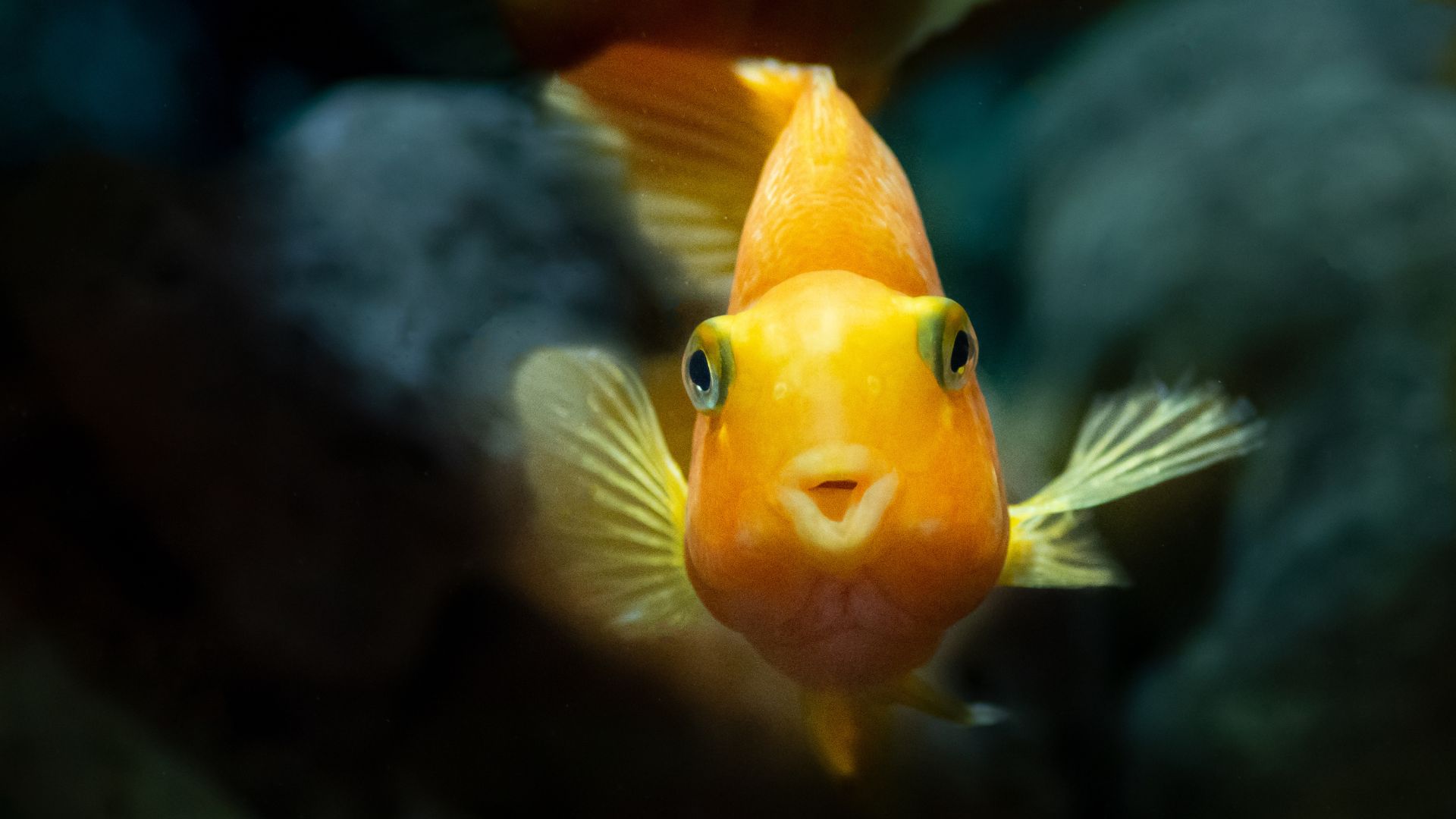Why is my dog peeing so much? Vet explains the causes for increased urination in dogs
An expert shares eight reasons for increased urination in dogs and when it's time to see a vet.
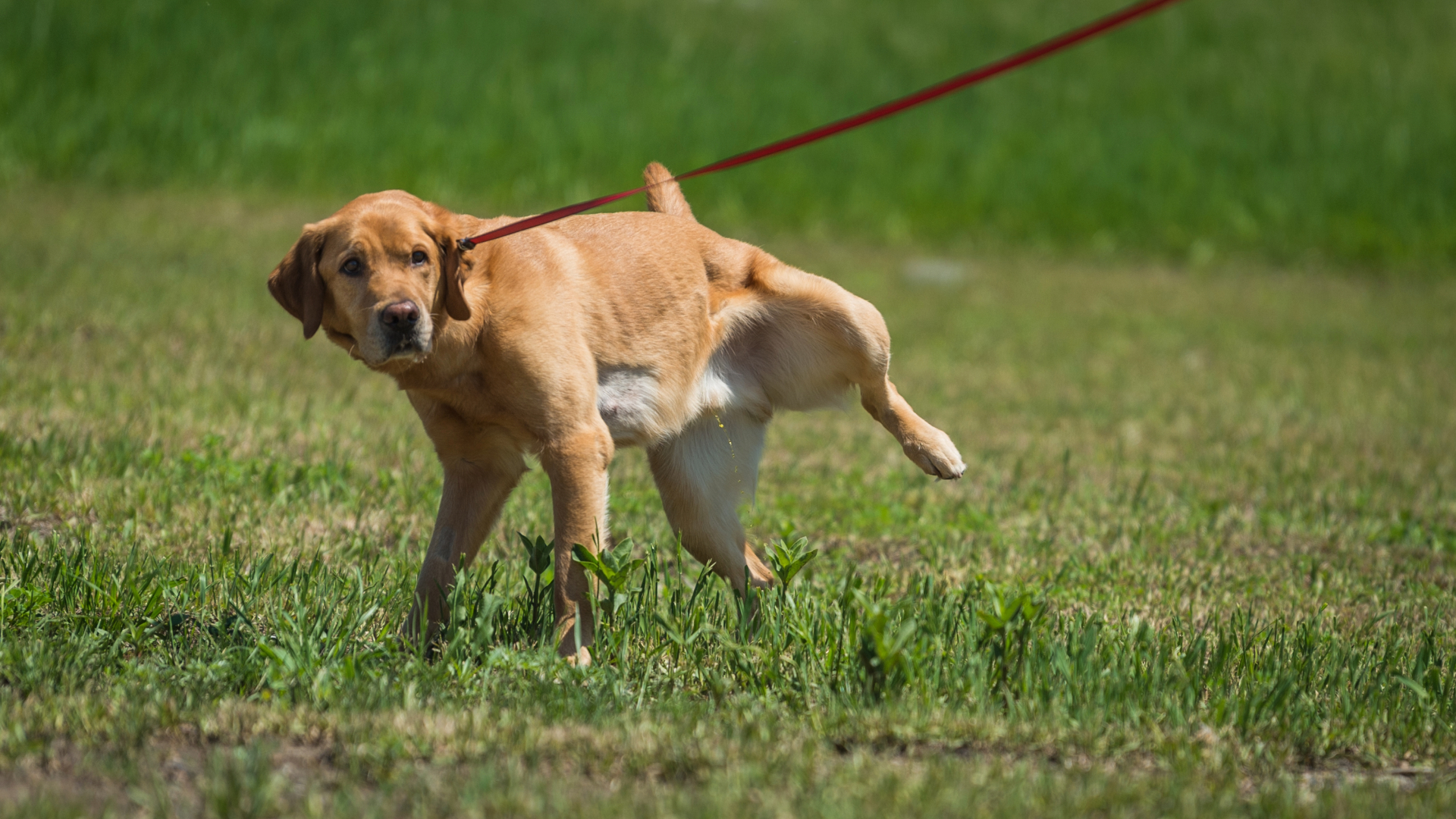
Increased urination in dogs can be a concerning sign, often indicating an underlying health issue. While occasional changes in bathroom habits or accidents in the house may have a perfectly normal explanation, frequent and excessive urination can be a sign of an underlying health problem, as can excessive thirst in dogs.
In this article, vet Emma Chandley delves into the common causes of increased urination in dogs – from medical conditions like urinary tract infections (UTIs) and diabetes to lifestyle factors such as diet or stress. Emma has been working in general practice as a small animal surgeon for more than 13 years and is a lifelong dog owner.
Why would a dog suddenly start peeing a lot?
There are various reasons your dog may suddenly start peeing more frequently. Some may be harmless, while others could signal a serious health concern. If you notice an increase in your dog’s urination frequency, it's a good idea to consult your vet. Common causes of increased urination in dogs include:
Urinary Tract Infection (UTI)
A UTI irritates the bladder, causing increased frequency and urgency of urination. Dogs may strain to urinate or show discomfort, and the urine may appear cloudy or have a strong odor. Here are six signs of a UTI in female dogs.
Diabetes mellitus
This condition causes elevated blood sugar levels, leading to increased thirst (polydipsia) and frequent urination (polyuria). The body tries to eliminate excess sugar through urine, resulting in frequent trips to the bathroom. Without treatment, diabetes in dogs can cause uncontrolled urination, leading to accidents around the house. We have more information about diabetes mellitus in dogs.
Kidney disease
When the kidneys aren’t working properly, they lose the ability to concentrate urine effectively. This causes frequent urination as the body tries to flush out toxins and maintain fluid balance.
Cushing’s disease (Hyperadrenocorticism)
Cushing's disease is a hormonal disorder causing excessive cortisol production. This can lead to increased urination and increased thirst. Dogs with Cushing’s may also develop other clinical signs such as a pot-bellied appearance, hair loss, and changes to their appetite.
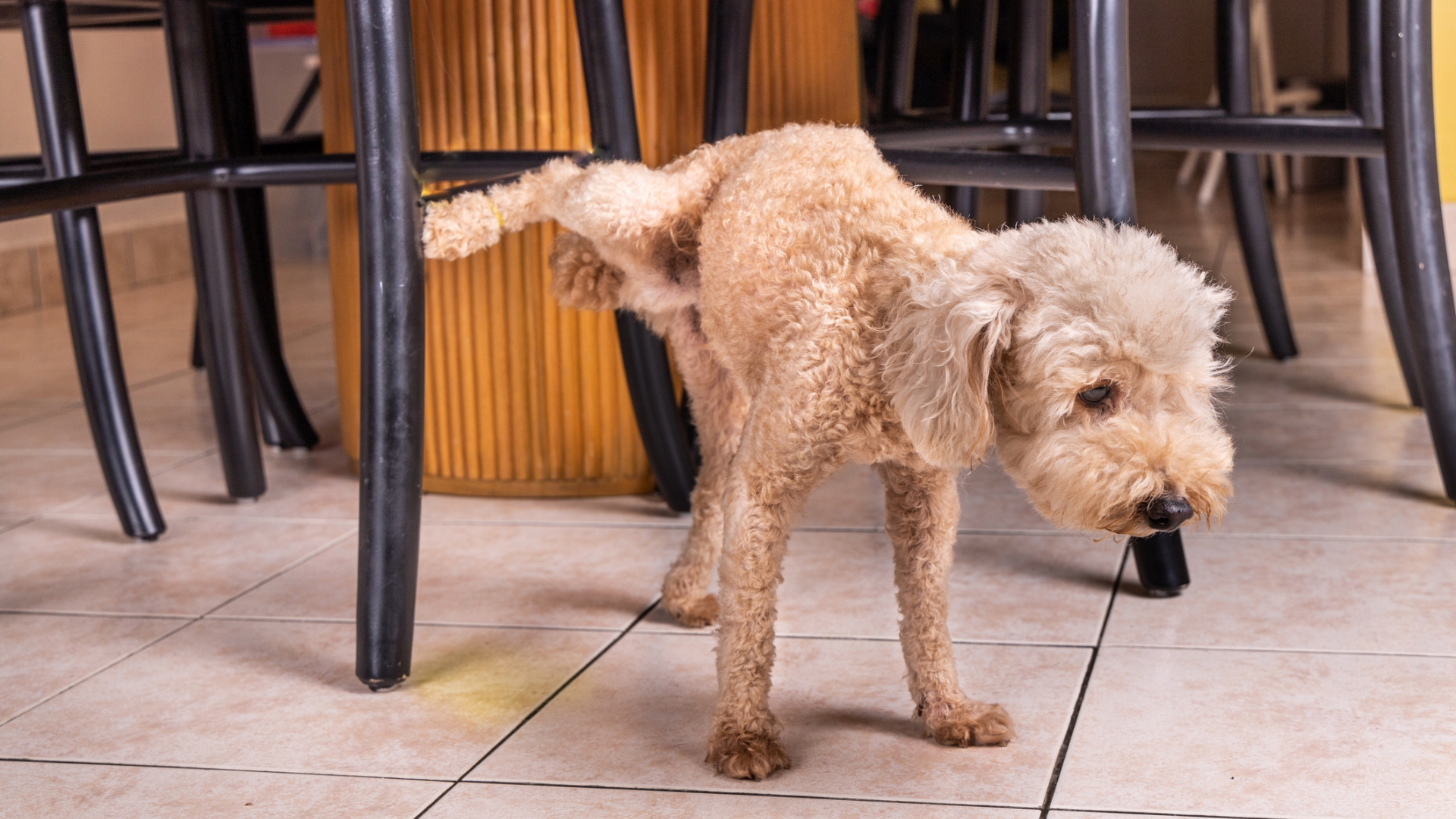
Medications
Certain medications, such as diuretics or steroids, can increase urination in our furry friends. If your dog has recently started a new medication, be aware of possible side effects. Typically, these effects resolve when the medication is stopped.
Behavioral changes
Stress or anxiety in dogs can cause increased urination. Some dogs mark territory or display submissive urination due to stress. While there’s no physical issue, these behaviors should still be addressed.
Dietary changes
A sudden change in diet can lead to increased water intake and more frequent urination in dogs. If you are changing your dog’s diet, always consult your vet first. Changing dog food needs to be done gradually over a couple of weeks.
Increased water intake
If your dog is drinking more water, due to hot weather, increased exercise, or health issues, they will naturally urinate more frequently. Monitoring your dog’s water consumption for any significant changes can be helpful. If you can quantify the amount they are drinking then it's easier to track if it suddenly increases.
How much should dogs pee?
The frequency of urination in dogs depends on size, age, and overall health. Here are some guidelines to follow:
Puppies
Puppies typically need to pee every one to two hours due to their small bladder size. You can expect even more frequent urination during potty training as they gradually learn to control their urges to pee.
Adult dogs
Most adult dogs need to pee about three to five times a day. Factors such as size, breed, and activity level affect urination frequency. Lots of dogs like to pee on things when they are out and about on their walks such as lamp posts and trees. They do this to mark their territory. You may see your dog trying to urinate a lot on a walk but they do not need to pass pee on every occasion.
Senior Dogs
Senior dogs may need to urinate four to six times a day due to aging or health conditions affecting bladder control. You might want to read our guide on how to stop your dog peeing around the house.
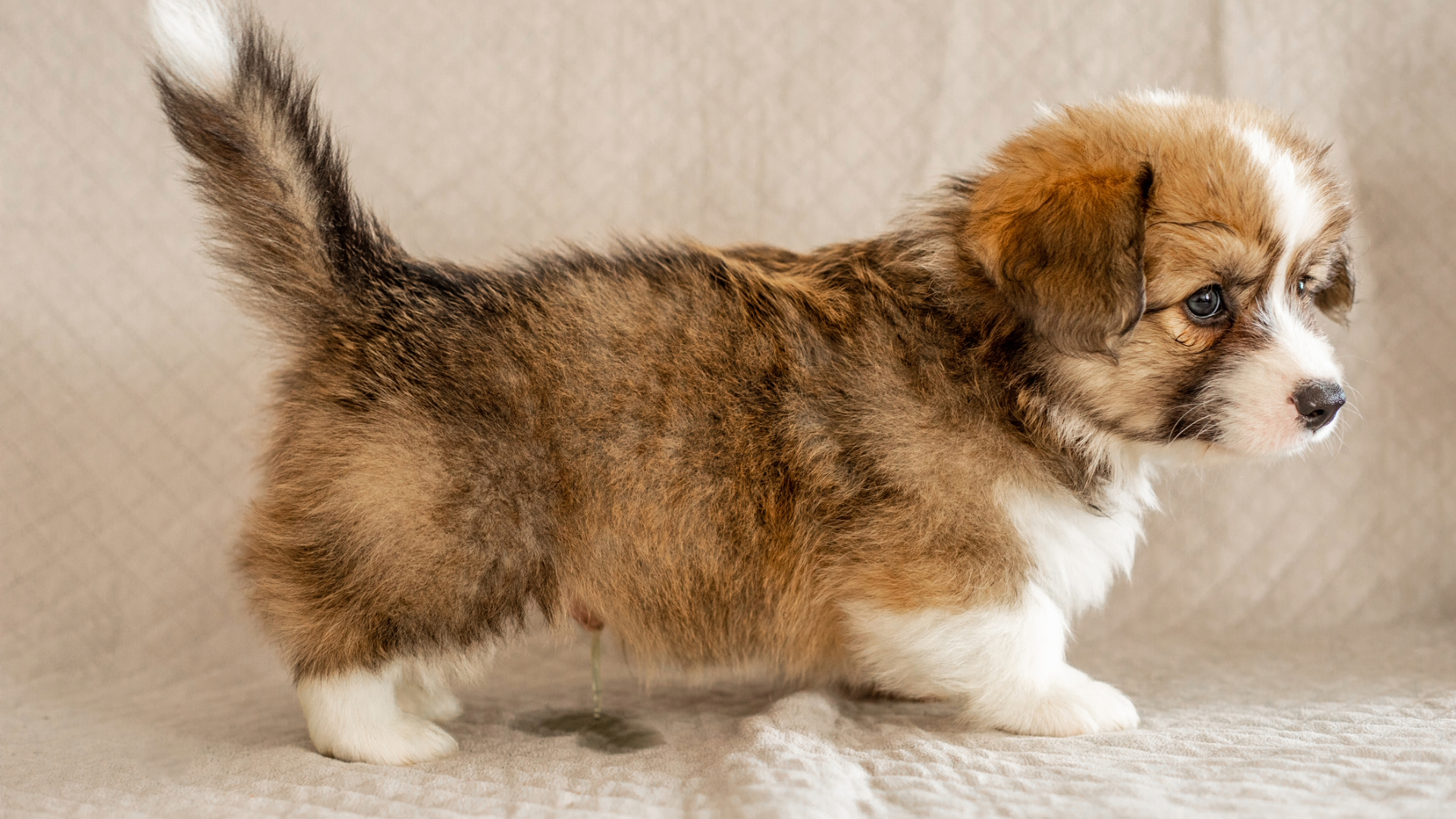
When should I be concerned about my dog peeing?
You should be concerned about your dog’s urination habits if you notice:
Increased frequency: If your dog is urinating more than usual (see above guidelines), it could indicate diabetes, kidney disease, Cushing's disease, or an infection.
Decreased urine output: If your dog strains to urinate but produces little to no urine, they may have a urinary blockage, which is a medical emergency.
Pain or discomfort when urinating: If your dog seems in pain while peeing, it could be a sign of a UTI or other urinary issue. Consult your vet if you notice this behavior.
Straining to urinate: Difficulty in urinating can indicate a urinary blockage such as urinary stones or infection.
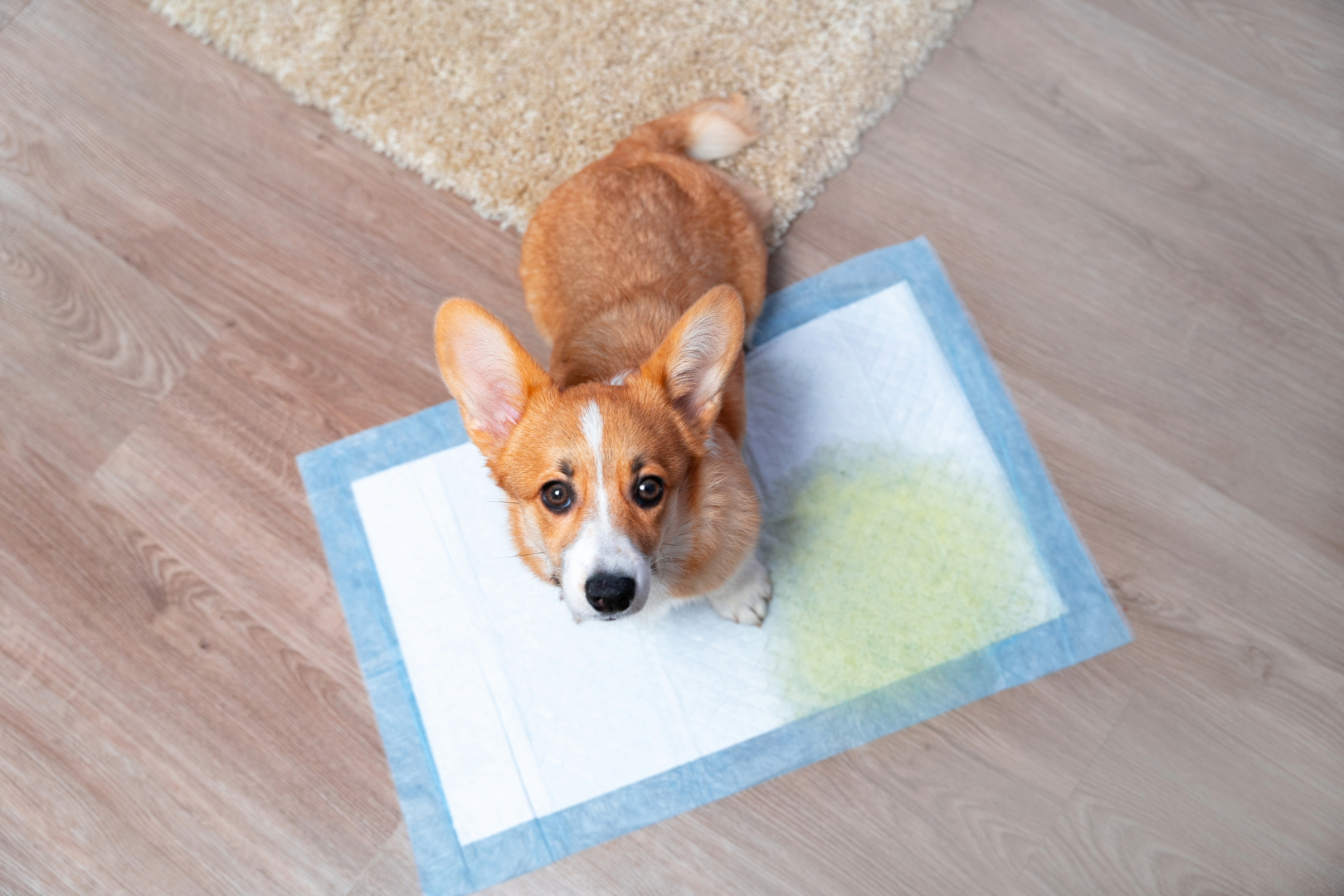
Blood in urine: Blood or unusual urine color and odor can be signs of a possible infection or serious health issues such as bladder stones or cancer.
Accidents: If your dog starts leaking urine unexpectedly or having accidents in the house, while they are sleeping, at rest, or moving around, you need your vet to investigate why this is occurring. It could just be aging changes but it can also be a sign of a medical condition. We also have a helpful feature on incontinence in dogs.
Excessive licking of genitals: If your dog excessively licks their genital area, this can be a sign of a UTI or other urinary tract problem requiring veterinary attention.
You might also want to read: Why does my dog pee on my bed?
PetsRadar Newsletter
Get the best advice, tips and top tech for your beloved Pets
Emma Chandley is a vet with 14 years of experience and has a keen interest in surgery. After graduating from the Royal Vet College in London in 2011, she achieved a postgraduate certificate in small animal surgery from the British Small Animal Veterinary Association and Nottingham Trent University. She was then awarded advanced practitioner status in the same discipline by The Royal College of Veterinary Surgeons. She has a black Labrador and two pygmy goats at home.

